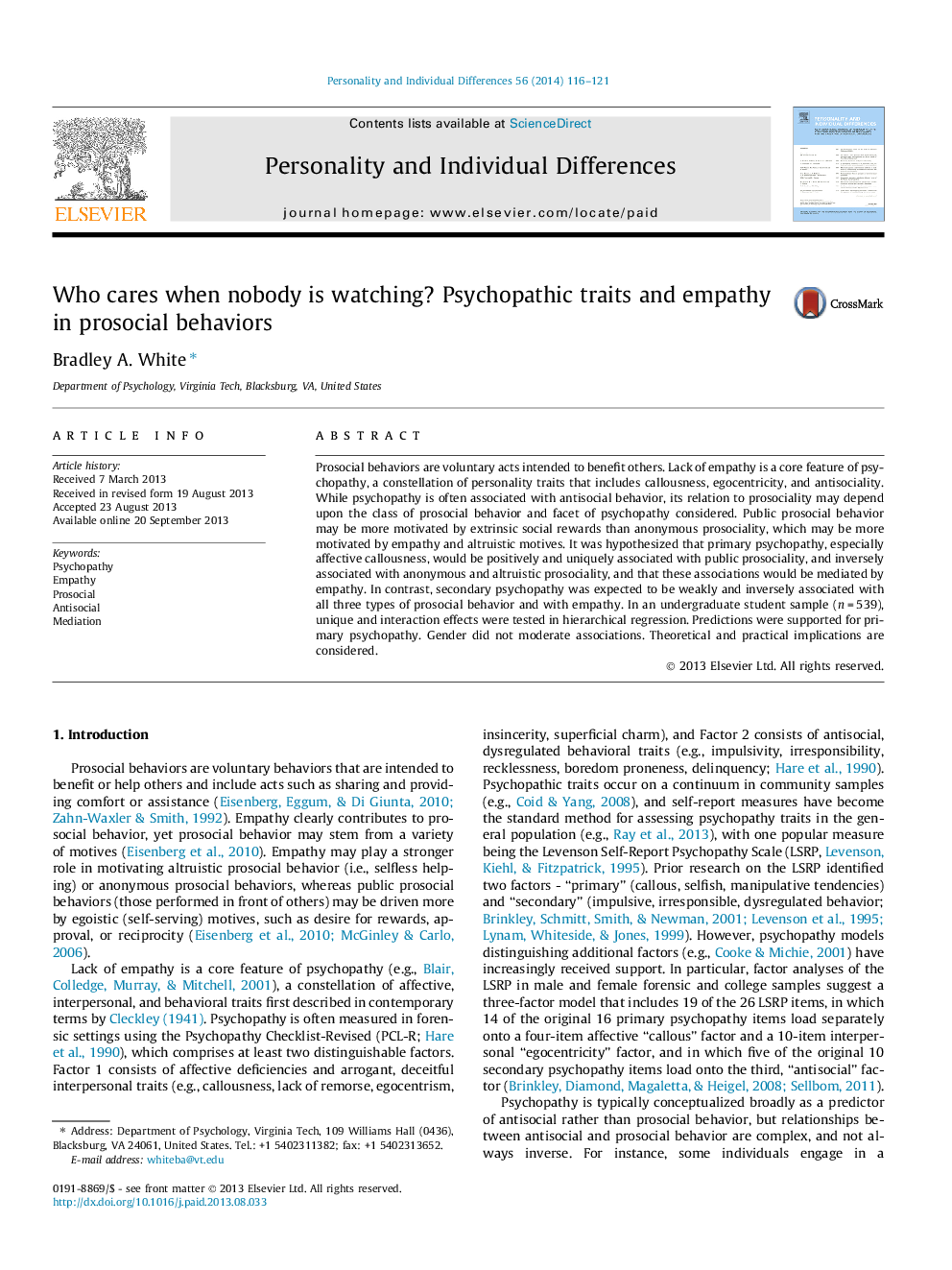| Article ID | Journal | Published Year | Pages | File Type |
|---|---|---|---|---|
| 890569 | Personality and Individual Differences | 2014 | 6 Pages |
•Primary psychopathy inversely related to anonymous and altruistic prosociality.•Primary psychopathy was positively related to public prosociality.•These relationships were mediated by empathy.•Secondary psychopathy was unrelated to altruism or to anonymous prosocial behavior.
Prosocial behaviors are voluntary acts intended to benefit others. Lack of empathy is a core feature of psychopathy, a constellation of personality traits that includes callousness, egocentricity, and antisociality. While psychopathy is often associated with antisocial behavior, its relation to prosociality may depend upon the class of prosocial behavior and facet of psychopathy considered. Public prosocial behavior may be more motivated by extrinsic social rewards than anonymous prosociality, which may be more motivated by empathy and altruistic motives. It was hypothesized that primary psychopathy, especially affective callousness, would be positively and uniquely associated with public prosociality, and inversely associated with anonymous and altruistic prosociality, and that these associations would be mediated by empathy. In contrast, secondary psychopathy was expected to be weakly and inversely associated with all three types of prosocial behavior and with empathy. In an undergraduate student sample (n = 539), unique and interaction effects were tested in hierarchical regression. Predictions were supported for primary psychopathy. Gender did not moderate associations. Theoretical and practical implications are considered.
